‘A Gallant Duel’ : SS Otaki and the Moewe
- Home
- World War I Articles
- ‘A Gallant Duel’ : SS Otaki and the Moewe
During the war, the Germans used merchant ‘raider’ ships against Allied shipping. The Moewe (also known as Mowe) previously Pungo, built in 1915, was designed as a refrigerated ship, originally intended as a freight ship for the transportation of bananas from Togo to the German colonies in Africa. As the Moewe, she would become one of the most successful of the German raider ships. She was also equipped to lay mines.
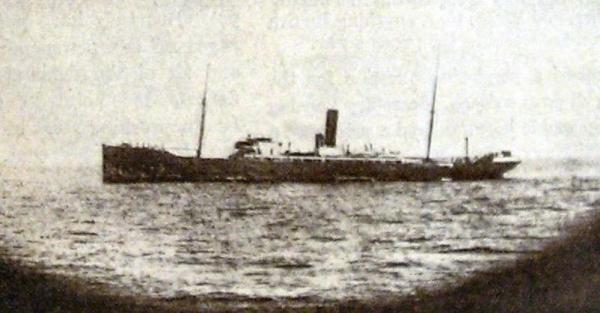
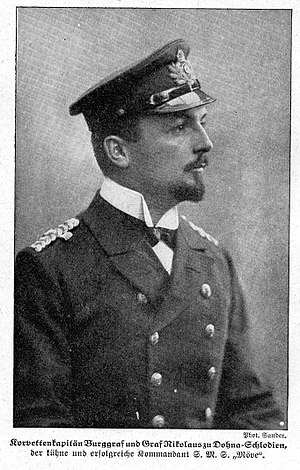
Above: the raider merchant ship Moewe and Korvettenkapitan Nikolaus zuDohna-Schlodien
The Moewe had captured or sunk a number of ships in the course of her first cruise between 29 December 1915 and 4 March 1916.
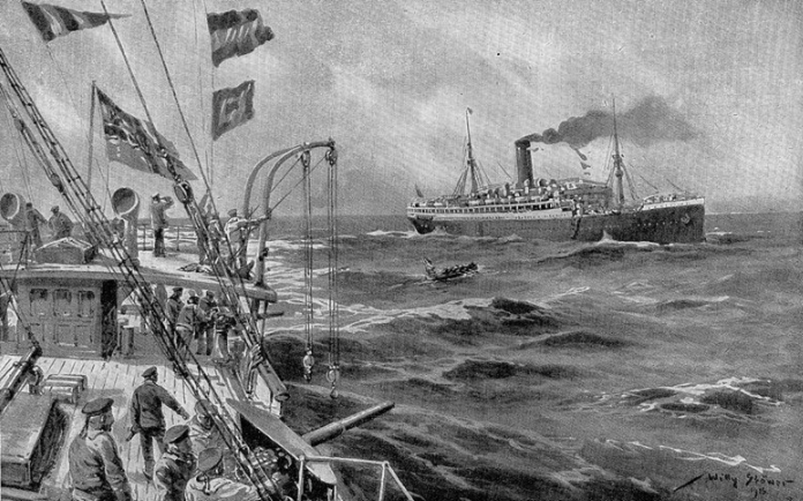
Above: the Moewe capturing the Appam in January 1916.
Her second cruise began in November 1916, with similar results, until she encountered SS Otaki on 10 March 1917.
Built in Scotland by Denny’s of Dumbarton in 1908, the Otaki was a New Zealand Shipping Company refrigerated cargo steamship, registered at Plymouth, and intended for the transport of meat from New Zealand to Britain. She was also the first merchant steamer to be fitted with triple expansion and turbine machinery. During the war, the Otaki was fitted with a small 4.7inch gun.

Above: the Otaki pictured in the Daily Mirror, April 1917
The Captain of the Otaki was Archibald Bisset Smith. Born in Cults, near Aberdeen in 1878, he attended Robert Gordon’s College in the city for two terms before joining the Merchant Navy in 1895. Whilst serving in the New Zealand Shipping Company, he gained his Master’s ticket in 1903. Smith served on a number of NZ Shipping Company vesselsbefore he took command of the Otaki in June 1915. He married Edith Clulee Powell in 1914 – he had met her in New Zealand. Edith had been married before and had a son, Alfred, who took Smith’s name after his mother’s marriage. Alfred followed his stepfather into the Merchant Navy and was also serving on the Otaki on its final voyage.
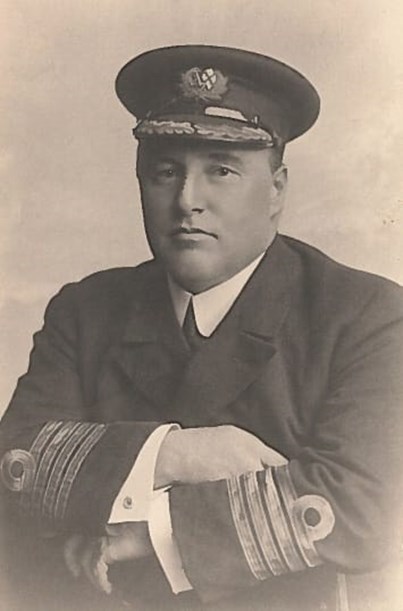
Above: Captain Archibald Bisset Smith. Photo – Robert Gordon’s College
With a crew of 71, the Otaki was sailing from London to New York in March 1917 when it was sighted by the Moewe, which had just sunk the Esmeraldas. The Otaki ignored Moewe’s order to stop, trying unsuccessfully to outrun her. Otaki then started firing on the Moewe. In what would be described in numerous newspaper reports later in the month, the Otaki then put up ‘a plucky fight’ for about twenty minutes against the Moewe, inflicting serious damage on her and causing a fire to break out, which reportedly was not put out for three days. However, the Otaki was also hit by several shells and the Captain ordered the boats to be lowered. Six members of the crew, including the Captain were killed in the encounter and the Otaki sank.
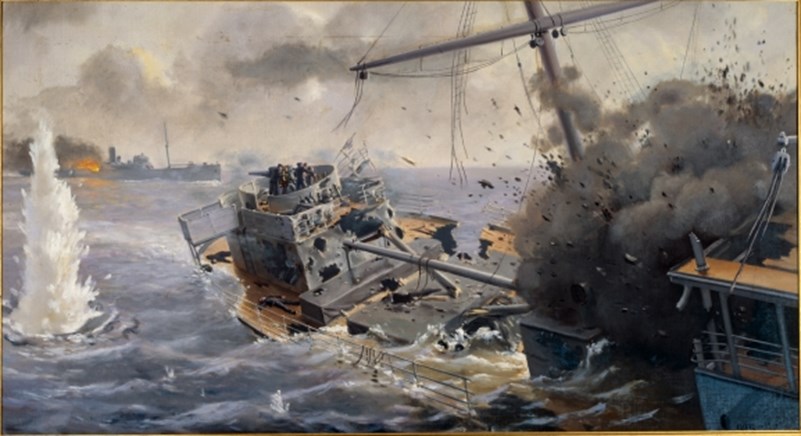
Above: a painting depicting the sinking of SS Otaki. Photo – Nzhistory.net
The surviving crew were later taken on board the Moewe, where they joined prisoners from the Esmeraldas and other vessels which the Moewe had sank. Newspapers would later carry reports of conditions on board from seamen from neutral countries who had been taken prisoner but later released from what was described as ‘a very disagreeable experience’ as there were over 600 prisoners on board, with the British prisoners kept apart from others in cramped and stifling conditions in the hold.
The Moewe’s captain later described the action of the Otaki as ‘a duel as gallant as naval history can relate’.
The damage inflicted on the Moewe by the Otaki effectively ended the Moewe’s war – after the war, her exploits would be captured in newsreel. Over the course of her two cruises, she had captured or sunk almost 40 ships.
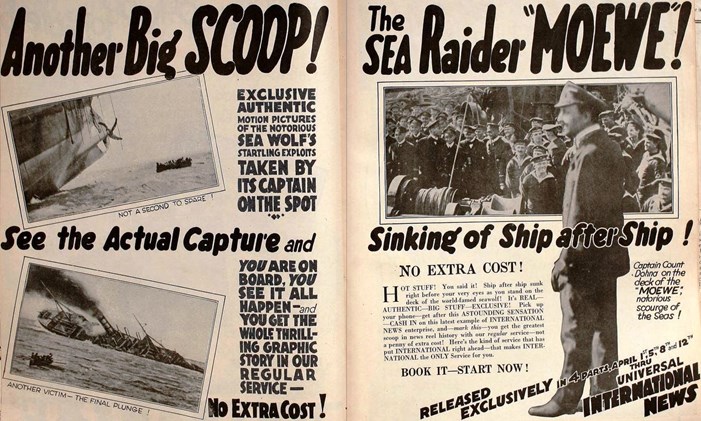
Above: an advertisement for the newsreel coverage of the Moewe’s wartime exploits
Captain Smith was awarded the Victoria Cross – one of only two Merchant seamen in the war to receive the award. As Merchant Navy personnel were not eligible, he was posthumously enlisted in the Royal Navy as a Lieutenant. The citation states:
“For most conspicuous gallantry and devotion to duty when in command of the SS ‘Otaki’ on 10 March 1917. At about 2.30pm on 10 March 1917 whose armament consisted of one 4.7 in gun for defensive purposes, sighted the disguised German Raider ‘Moewe’ which was armed with four 5.9 inch, one 4.1 inch and two 22 pdr guns, and two torpedo tubes. The ‘Moewe’ kept the ‘Otaki’ under observation for some time and finally called upon her to stop. This Lieutenant Smith refused to do, and a duel ensued at ranges of 1900 2000 yards, and lasted for about 20 minutes. During this time, the ‘Otaki’ scored several hits on the ‘Moewe’ causing considerable damage and starting a fire which lasted for three days. She sustained several casualties and received much damage herself and was heavily on fire. Lieutenant Smith therefore gave orders for the boats to be lowered to allow the crew to be rescued. He remained on the ship himself and went down with her when she sank with the British colours still flying, after what was described in an enemy account as ‘a duel as gallant as naval history can relate’”.
His widow received the award at Buckingham Palace on 7 June 1919 accompanied by her son, Alfred, who had survived as a prisoner of war after the sinking. After his mother’s death, Alfred sold the Victoria Cross to the New Zealand Shipping Company.
In 1937, in memory of Archibald, the family presented the Otaki Shield to the college. This is presented every year to the senior boy judged to be ‘pre-eminent in character, in leadership and in athletics’.
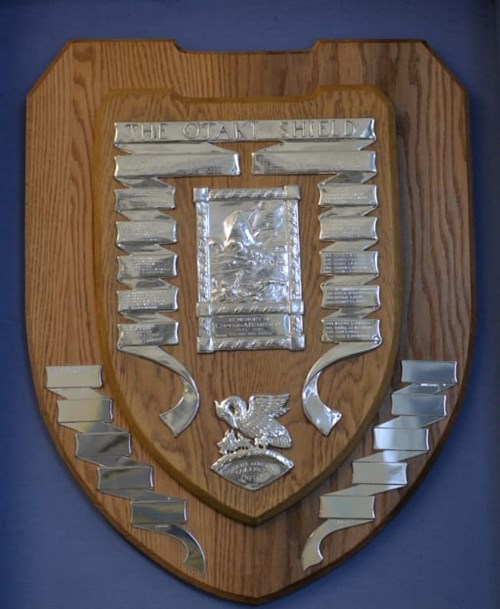
Above: the Otaki Shield, gifted to Robert Gordon’s College by Archibald Smith’s family. Photo – Robert Gordon’s College
Archibald Smith was not the only former pupil of Robert Gordon’s College to perish on the Otaki. On board was a very young Midshipman, William Esson Martin who was born on 11 April 1902 at Auchendoir, Aberdeenshire. He was the son of William and Margaret Martin. William attended Robert Gordon’s from 1913 until 1917 when he left to join the Otaki. He had only been on the vessel for a matter of weeks when he died, helping to load the Otaki’s gun. A letter he wrote to his sweetheart is displayed in the college:
Dear Annabelle,
I am very sorry I had not time to see you before I left but I only got one day’s notice. You need not write here for I will be leaving here on Monday or Tuesday. I don’t know when I will sail but I am going to the ship about the middle of the week. I will write again and tell you my address. The name of the ship is the "Otaki".
According to press reports, William’s parents later arranged to institute prizes in the school to commemorate their son. A memorial to William is situated on an internal wall of the now ruined Auchindoir Parish Church in Aberdeenshire.
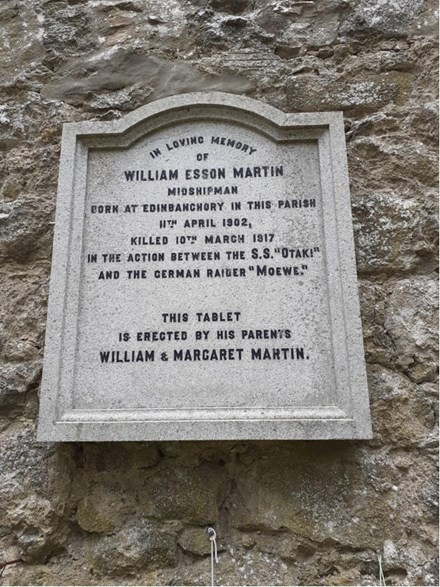
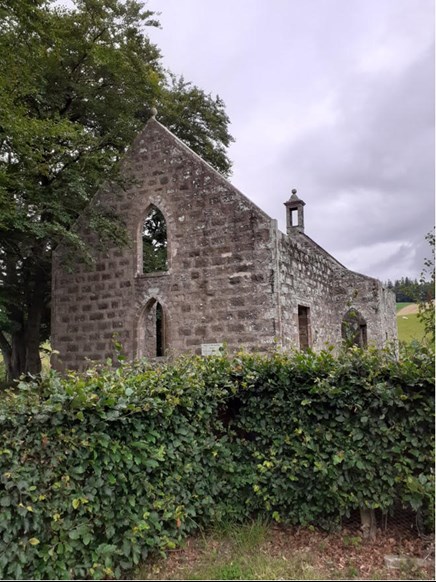
Above: the memorial and ruins of Auchindoir Church. Photos - Kenneth Garden
Four other members of the crew also perished - all are commemorated on the Tower Hill Memorial in London.
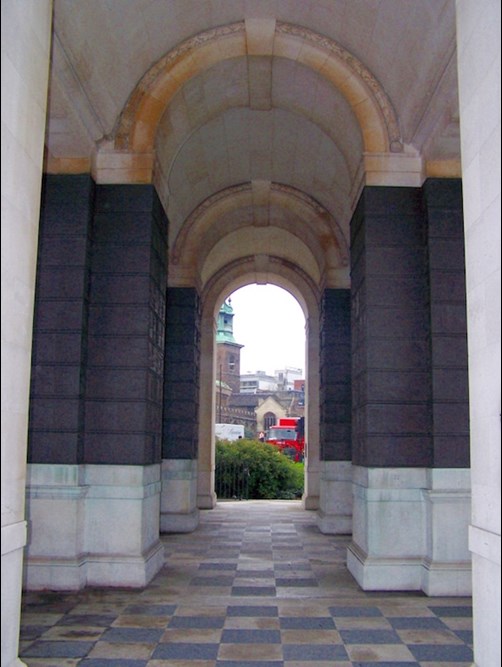
Above: Tower Hill Memorial to Merchant Seamen. Photo - CWGC
Article by Jill Stewart, Hon. Secretary The Western Front Association
Sources
www.rgc.aberdeen.sch.uk





